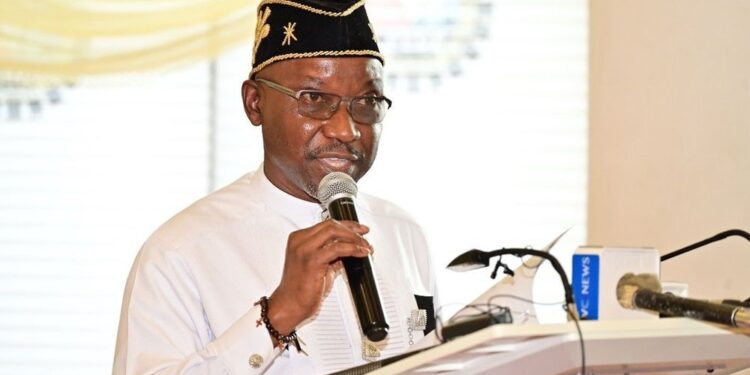Several key interventions, initiatives and private sector partnerships in recent times have given a major boost to Nigeria’s gas commercialisation and utilisation efforts. However, according to the Natural Resource Government Institute, (NRGI), meeting Nigeria’s domestic energy needs remains one of the most significant barriers to sustainable development and economic growth in the country.
Only half of Nigeria’s 200 million citizens currently have access to energy, and with the population set to double by 2050, universal access is a huge challenge. The government has sustained efforts to ramp up gas production, utilisation and export, with the aims of supporting industrialization, boosting domestic energy supply (for power, cooking and transport), and increasing government revenues.
This would certainly enhance economic activity, thus improving the lives of the half of the population living in extreme poverty. Whether ramping up gas utilisation is feasible, or indeed the appropriate approach to achieving Nigeria’s energy supply and economic ambitions, is uncertain. What is certain is that global pressure to transition away to cleaner energies and defund fossil fuel projects complicates the process of realising that goal and could lead to wasted investments that jeopardise the economic and energy security of Nigerians in the future. Nigeria’s gas reserves set at around 200 trillion cubic feet, CTCF) the country should be able to easily meet its domestic energy needs.
However, NRGI, observes that weak legal and regulatory frameworks, big infrastructure gaps, a non-cost-reflective pricing regime and host community conflicts have made the domestic gas sector uncompetitive and unattractive to investors. This, in turn, has left gas reserves under exploited, especially more expensive non-associated gas which represents half of Nigeria’s reserves.Implementation of reforms by successive governments through the 2008 Gas Master Plan, (GMP), the 2017 National Gas Policy the (NGP) and other instruments have proven slow. With the passage of the Petroleum Industry Act, (PIA) the legal, fiscal and regulatory framework of the gas sector has been strengthened with the creation of dedicated regulators, a dedicated minister, provision of third party access to infrastructure, and other improvements. But many gaps remain.
Thus the Decade of Gas Policy, launched in 2021 to address the limitations to achieving domestic gas-based industrialisation and economic prosperity, and reduce energy poverty, faces greater challenges. The plan is intended to implement all previous ambitions in the GMP and NGP including the construction of the Nigeria-Morocco gas export pipeline, expansion of the Nigerian Liquified Natural Gas (NLNG), infrastructure and revival of the Nigerian Gas Flare Commercialization Programme (NGFCP).
The government also intended the policy to settle debts to gas producers and initiate discussions on 10 key gas projects, aimed at unlocking greater volumes of gas both for domestic use and export. Nigeria seeks to unlock 3.1 bcf/d of gas to attract $14 billion in foreign direct investment, create over 2 million jobs and add $12 billion to the federal government’s revenue.
Unfortunately, experts observe that Nigeria has not aligned its gas ambitions with broader energy transition plans, even as it bases its transition on leveraging gas as a “transition fuel.” New investments in gas fields as envisioned in section 9 of the PIA runs counter to the evolving global shift away from fossil fuels. New investments require long lead times before projects come online (and returns are realised), at which point there will likely be an oversupply of products and no demand. If countries’ commitments to combat climate change hold, Nigeria may be unable to export gas at the level it has come to rely on.
That could potentially lead to stranded assets, including the pipeline investments to Europe, and infrastructure lock-in if renewable demand increases. Similarly, as gas production and use expand, the release of methane from flaring and venting gas, and from fugitive emissions, will likely increase. Those increased emissions will limit Nigeria’s ability to fulfil global methane emission reduction commitments, and also impact the health and environmental safety of nearby communities.
But then the Nigerian Gas Flare Commercialisation Programme (NGFCP) is an opportunity for Government, industry, State Government, ethnic nationalities, and local communities to work together to resolve an oil field unacceptable practice.
The government declared 2020 as the year of gas and through the declaration government has continued to make concerted efforts to improve its commitment towards significant flared gas reduction and driving gas utilisation for domestic and industrial usage.
Also, the Nigerian Gas Transportation Network Code (NGTNC) is meant to deepen the growth of the domestic gas market which became effective in February 2020.
This was in line with the government’s 2020 strategy to drive key policies and regulatory initiatives that would enhance gas reserves growth to support domestic and export projects.
Equally, the National Gas Expansion Programme (NGEP) and the Nigerian Gas Flare Commercialisation Programme (NGFCP)) would lead to improve gas supply to power, growth of gas-based industries, domestic Liquified Natural Gas, Compressed Natural Gas (CNG) and Liquefied Petroleum Gas (LPG) penetration, to enhance Government’s revenue from the gas sub-sector.
One of the objectives of the NGTNC is to unleash the potential of accelerated growth to stimulate investment opportunities and national economic development.
In the last 35 years the Nigerian Liquefied Natural Gas Limited, NLNG, has demonstrated to be a reliable partner in Nigeria’s gas development agenda.
The company, since 2008, has contributed about four per cent of Nigeria’s annual Gross Domestic Product (GDP). With rebasing of the GDP in 2014, NLNG’s contribution to the GDP is estimated at about one per cent. NLNG provided more than 12,000 jobs at the peak of construction of each plant.
There are numerous infrastructure interventions supported by the company.



